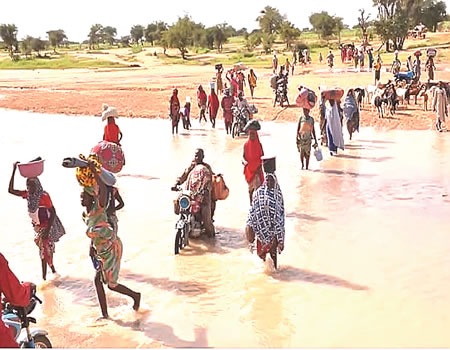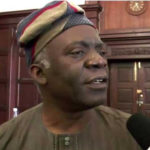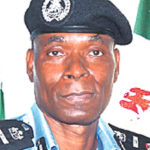THE United Nations High Commission for Refugees (UNHCR) has disclosed that over 1.9 million Nigerians are still in various Internally Displaced Persons camps in Nigeria as a result of Boko Haram insurgencies in North East part of Nigeria.
Group send cooked food to Lagos community where children feed from the dustbin
UNHCR Representative in Nigeria, Mr Antonio Canliadula, made this known on Friday in Abuja at a joint pre-conference briefing with the Minister of Interior, Lieutenant Gen.Abdulrahman Dambaza u on the second regional protection dialogue on the Lake Chad Basin holding from 28 to 29 January, 2019.
Canliadula said even though the current administration of President Muhammadu Buhari has tried to contain the insurgency, the humanitarian aspect needs to be urgently addressed.
He said it was a misnomer for human beings to be kept perpetually in IDP camps, where there were no access to health, education and other social amenities.
“If you have followed events closely in the last three weeks, there had been heightened security problems in some part of the North, which had resulted into the flight of another 6,000 Nigerian refugees into Chad and 9,000 into Cameroun.
“This situation has reinforced the need for us to sit again and see what could be done in this continuous situation of protection problem,” he said.
He thanked the government of Nigeria for facilitating and accepting to host the meeting in Abuja, at a time when everyone is busy in a build up to the 2019 general elections.
He added that the UNHCR has planned a 90-day response plan for 300,000 Nigerians Internally Displaced People as a result of the current security situation.
He noted that what this means was that there was the need to reinforce partnership, especially with the humanitarian agencies who would be able to respond a little bit better to the plight of these IDPs population.
“It is easy to sit down in Abuja and talk about a suffering population but when you see how a population is suffering on the ground, you might have a better perception of what you need to talk about them,” he stated.
He said when he visited some of these troubled areas, he was shocked women and children were crying because they do not know where their family members were.
He disclosed that there was a particular situation where three children were rescued and were brought naked.
He said there was the issue of human dignity which is needed to be dealt with and that this was not only the responsibility of the humanitarian agencies but for the media to project the suffering of the people in order to assist this population.






